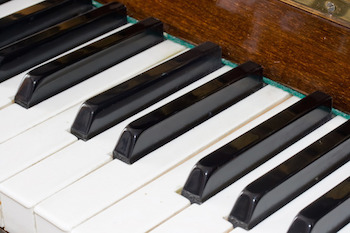Music is an essential part of any church program. From practicing for performances, to teaching music in the classroom, to performing for Sunday events, most functions center around the piano.
With the piano being the highlight at many activities, it’s important to maintain each piano in the church, and keep them in good working condition throughout the year. It’s difficult to enjoy a program if you can hear an off, tinny sound somewhere in the background.
Most churches have a number of pianos throughout the building. Where a piano is located determines how much maintenance it will need.
The sanctuary piano typically is front and center for weekly services, and either sits alone or is used in conjunction with an organ. A sanctuary piano needs first class maintenance. At a minimum, schedule at least two tunings a year, and a regularly scheduled maintenance routine of regulation, voicing, cleaning, etc.
The balcony piano is often used in conjunction with the sanctuary piano, depending on the set up of the choir and the congregation. Yet because this piano is typically out of sight, it’s easy to forget about it during regularly scheduled maintenance. A thorough check up is also needed to keep it in good working condition, providing a quality sound for the various events throughout the church.
Classroom pianos are often designed to help run Sunday school and special events. While these pianos are not typically heard by a high number of people, it is important for them to have good tonal quality because they are usually linked to practice sessions and helping develop an interest in music. If the piano is out of tune or isn’t voiced properly, it can impact the way a child learns to appreciate music.
Fellowship hall or basement pianos might not be front and center of every event that occurs in these rooms, yet when they are in use, full attention is given to the music being produced. To encourage an appreciation for music and for more people to play, quality sound is mandatory.
With all pianos, temperature and humidity control can be a problem. To save on energy costs, many churches keep a careful eye on temperature, keeping it comfortable only when the church is in use. That means heat and cold can impact the various pianos throughout the church in different ways. Be sure all pianos set away from windows and doors where drafts and direct sunlight can impact them most. Also be aware that this temperature variance can play havoc on the tonal quality of the piano, requiring more tune ups throughout the year.
To coordinate a regularly scheduled maintenance routine for the pianos in your facility, start by having a qualified technician evaluate your current set up, and determine a schedule that is right for you.

